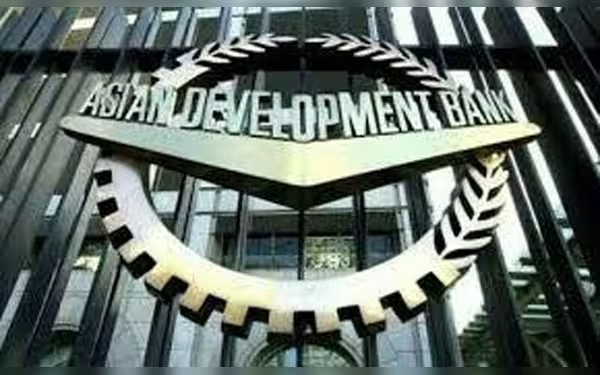Saturday, November 23, 2024 05:16 PM
ADB Launches Initiative to Combat Greenhouse Gas Emissions in Pakistan
- ADB focuses on enhancing water efficiency in agriculture.
- Pilot studies aim to reduce water wastage in rice cultivation.
- Initiative aligns with Pakistan's climate commitments.
 Image Credits: dailytimes_pk
Image Credits: dailytimes_pkADB initiates measures to reduce greenhouse gas emissions in Pakistan, focusing on water efficiency and sustainable agricultural practices.
The Asian Development Bank (ADB) has taken a significant step towards addressing the pressing issue of greenhouse gas emissions in Pakistan. This initiative is particularly focused on enhancing water efficiency, which is crucial for the country’s agricultural sector. Agriculture plays a vital role in Pakistan's economy, but it also faces numerous environmental challenges, especially concerning water usage and climate change.
In collaboration with local authorities, the ADB has launched pilot studies in Sheikhupura and Okara. These studies aim to explore alternative methods for wetting and drying soil, which could lead to improved water production capacity. By experimenting with these new techniques, the ADB hopes to reduce water wastage in agriculture, a major concern in a country where water scarcity is becoming increasingly severe.
According to a report by the ADB, the pilot project is expected to not only lower greenhouse gas emissions but also mitigate the environmental impact associated with rice cultivation. This is particularly important as rice is a staple crop in Pakistan, and its production is essential for both food security and the economy. The initiative aligns with Pakistan’s commitments under the Paris Agreement and the Global Methane Pledge, which aim to combat climate change and its effects on the agricultural sector.
The report emphasizes the necessity for farmers to adopt alternative techniques to manage water usage more effectively. It states, “A green revolution in Pakistan’s agriculture sector is expected under the Paris Agreement and the Global Methane Pledge,” highlighting that water conservation is a critical component of this transformation.
Over the past decade, Pakistan has seen a remarkable 95% increase in rice exports, with the annual export volume reaching USD 3.7 billion. This growth underscores the importance of safeguarding rice production from the adverse effects of climate change. An ADB spokesperson remarked, “The rice crop needs protection from the effects of climate change, and our partnership with Pakistan is focused on providing that.”
This initiative represents a significant stride towards a more sustainable agricultural future for Pakistan. As the country grapples with growing environmental challenges, including water scarcity and climate change, the ADB’s efforts could pave the way for innovative solutions that not only protect the environment but also ensure the livelihood of farmers. By embracing new agricultural practices, Pakistan can work towards a greener future, benefiting both its economy and the planet.













